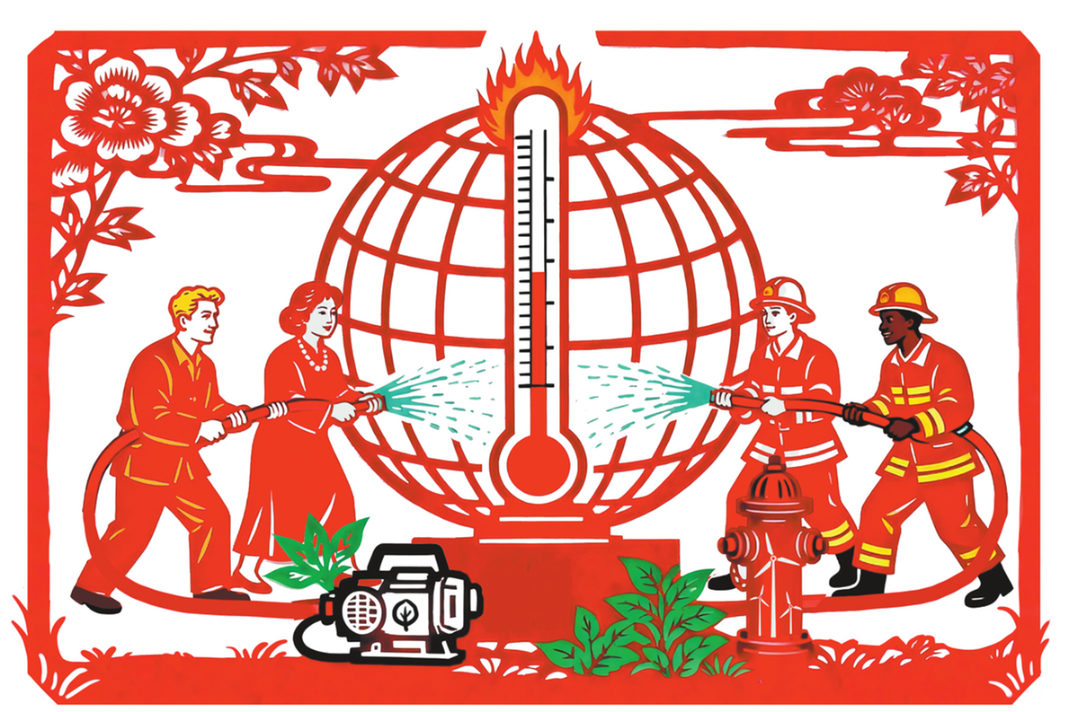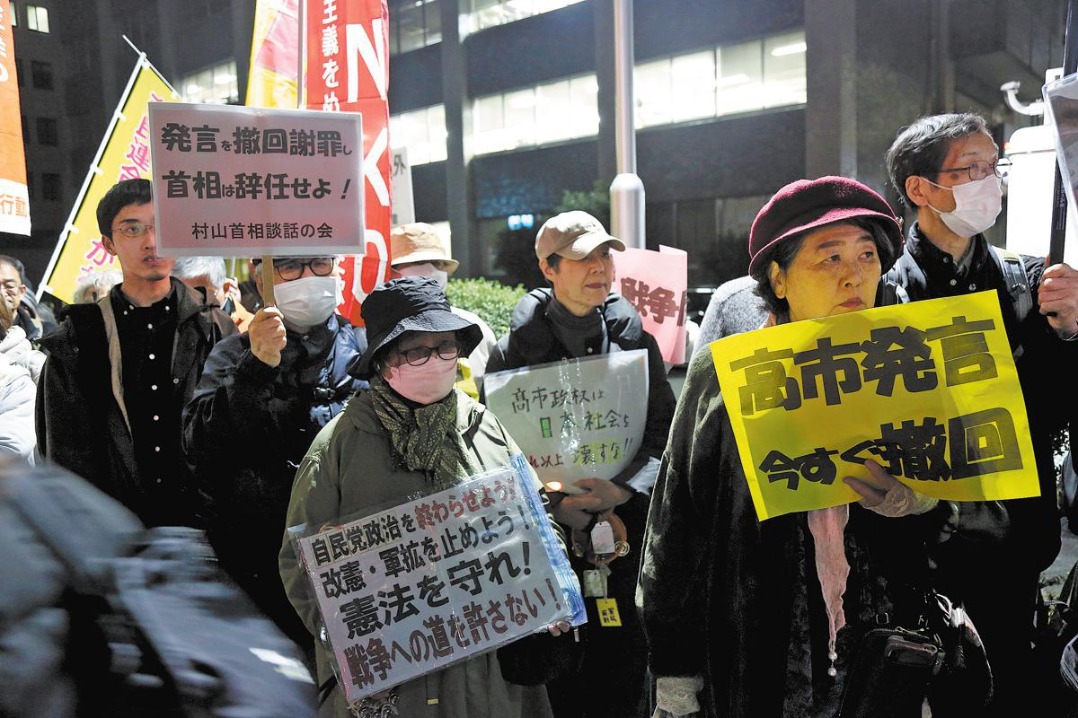Equitable enabler


African countries have welcomed the GGI as the means to transition from passive recipient to active participant in the global system
China's Global Governance Initiative has been widely welcomed by African countries, as it aligns closely with the continent's long-standing structural imbalances and development needs. Currently, the global governance mechanisms feature inequalities in the distribution of power, institutional participation and the provision of global public goods. The Global Governance Initiative provides an equitable, inclusive and development-oriented platform for cooperation. Many African countries view the proposal of the initiative as an opportunity to strengthen their institutional voice and transform their role in global affairs — from recipients to active participants and contributors.
Against the backdrop of profound adjustments in the international order and a persistent shortfall in the provision of global public goods, developing countries are expressing an increasingly urgent demand for fairer, more inclusive and more sustainable global governance. African countries broadly view the Global Governance Initiative as a response to their long-standing concerns over structural imbalances and limited participation, offering a new pathway for enhancing their voice and institutional influence in global governance.
For decades, African countries have faced deep structural inequities embedded in the existing international order. In 2024, nearly two-thirds of the United Nations Security Council's resolutions based on Chapter VII of the UN Charter, which empowers the Security Council to take measures in the face of threats to the peace, breaches of the peace or acts of aggression, including non-military sanctions and military actions, concerned African countries. Yet African countries have no decision-making authority over matters that directly affect their own regional security. The 54 African countries, home to roughly 1.3 billion people, collectively hold only 6.47 percent of the voting power at the International Monetary Fund, an allocation grossly disproportionate to their demographic and geopolitical weight.
While Western countries rhetorically champion a "rules-based international order", they continue to apply structural injustice in practice, including trade barriers that constrain export diversification, financial institutions that attach conditions, intervention in security issues and rigid upstream-downstream divisions in the global supply chains that leave African countries persistently disadvantaged. The United States' African Growth and Opportunity Act, a partial duty-free policy for sub-Saharan African countries, expired at the end of September and has yet to be renewed by the US Congress. At the same time, the Donald Trump administration has imposed tariffs of 15 percent to 30 percent on the exports of 22 African countries, delivering a sudden blow to their already fragile industry chains, severely eroding economic growth and triggering large-scale job losses.
From an African perspective, these challenges are not incidental — they stem from long-standing distortions in the design, power distribution and rule-making mechanisms of the global governance system. As a result, African countries increasingly advocate that reform must advance on three points: First, the power distribution should be reconfigured so that global decision-making structures reflect population size, development needs and actual contributions. Second, the transparency of institutional procedures should be democratized and enhanced to ensure equal participation rather than passive compliance. And third, the provision of global public goods should be balanced to narrow the North-South disparities and close development gaps.

In this context, China's Global Governance Initiative provides a critical fulcrum for Africa to secure an institutionalized voice. Many African countries hope to take advantage of this opportunity to promote a fairer, more inclusive international system that better represents developing countries' interests, enhancing Africa's influence and institutional gains on key issues such as climate change, debt restructuring, digital transformation and global health governance.
In recent years, African recognition of China's development model and governance approach has risen, not only among governments but also among the public, especially among the youth. According to a joint survey by The Economist and the polling firm GlobeScan, approximately 60 percent of African respondents believe China has a positive impact on their national development, compared with 53 percent for the US and 54 percent for the African Union. Afrobarometer survey data show that 23 percent of Africans view China as their preferred development model — higher than the figures for former colonial powers and African countries such as South Africa. This indicates that China-Africa cooperation has expanded beyond economics and trade to institution and governance.
This trend is even more pronounced among young people. According to the global youth survey "The World Through the Eyes of Generation Z", jointly released by China Daily and Xi'an Jiaotong University, 59.01 percent of African youth believe China will lead the global economy in the future, while only 23.04 percent believe the US will retain its dominant position. In key technology sectors, African youth express strong confidence in China in fields such as new energy, artificial intelligence, high-speed rail, autonomous electric vehicles and quantum communications.
This recognition is not based on emotional preference, but on pragmatic assessments rooted in real development needs. First, African youth place greater emphasis on autonomous development and are inclined to learn from diverse and practical models rather than ideological frameworks. Second, the tangible impact of China's infrastructure projects in Africa aligns closely with young people's aspirations for modernization. Third, expanding cooperation in technology, capacity building and the digital economy provides opportunities for youth participation.
These findings reflect emerging characteristics in African youths' perceptions of global governance — greater pluralism, competitiveness and pragmatism. They seek a global governance system that prioritizes opportunity, technology and cooperation rather than one constrained by traditional geopolitical narratives.
Africa is at a critical juncture of economic transformation, industrial upgrading, digital leapfrogging and governance modernization. According to the UN Economic Commission for Africa, the continent's public health systems remain weak and its food and energy security risks are intertwined. Africa faces annual infrastructure needs of approximately $130 billion to $170 billion, with a financing gap of $70 billion to $90 billion. By 2030, its climate financing shortfall may reach $250 billion. In the areas of cross-border connectivity, public health governance, climate response, the energy transition and food security, Africa urgently requires global public goods that are stable, reliable, sustainable and inclusive. Yet the current global governance mechanism suffers from clear deficits in climate finance, health system development, technology sharing, development funding and digital governance, lacking both resources and coordination.
China's Global Governance Initiative appears especially timely. Its emphasis on joint participation, cooperative governance and development-oriented solutions resonates strongly with Africa's longstanding expectations. For African countries, the initiative offers not only a new platform for China-Africa policy and institutional cooperation but also a realistic pathway to expanding institutional space and securing greater development dividends. More importantly, it helps shift Africa's long-standing role in the global system — from a passive recipient to an active participant and shaper of the global governance community.
The author is a research fellow at the Foreign Policy Division at the Institute of World Economics and Politics at the Chinese Academy of Social Sciences. The author contributed this article to China Watch, a think tank powered by China Daily. The views do not necessarily reflect those of China Daily.
The views do not necessarily reflect those of China Daily.
Contact the editor at editor@chinawatch.cn.


































